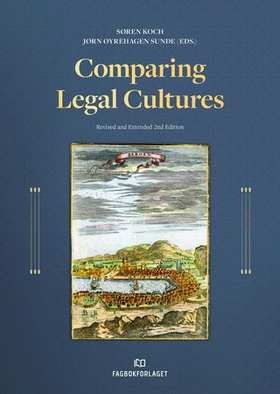
Legg til i ønskeliste
Gratis utdrag
- Sett i bokhyllen
- Les gratis utdrag
Comparing legal cultures ebok
729,-
In the present era of internationalisation of law, being able to analyse legal culture enables legal cooperation. However, legal culture is still more a theoretical concept than an analytical tool applied when approaching law.
There are many kinds of legal cultures, concerning different groups of legal actors or covering different geographical areas, and they are at times overlapping. However, the national legal culture is still the one that has the largest influence on the everyday life of …
Ebok
729,-
Forlag
Fagbokforlaget
Utgitt
28 august 2020
Lengde
804 sider
Sjanger
Fagbøker, Jus
Språk
English
Format
pdf
DRM-beskyttelse
LCP
ISBN
9788245034912
In the present era of internationalisation of law, being able to analyse legal culture enables legal cooperation. However, legal culture is still more a theoretical concept than an analytical tool applied when approaching law.
There are many kinds of legal cultures, concerning different groups of legal actors or covering different geographical areas, and they are at times overlapping. However, the national legal culture is still the one that has the largest influence on the everyday life of citizens and the day-to-day work of lawyers.
In this book, the editors first theorize on and give practical guidance on how to identify, deconstruct and examine legal culture. Based on a common analytical framework, the editors and a large number of expert contributors explore central institutional and intellectual features of legal culture in 12 European countries next to USA, China and Australia allowing the reader to systematically compare legal cultures.
This is the second and extended version of Comparing Legal Cultures, which is the first thorough and extensive book that analyses national legal cultures as an approach to comparative law. The book aims at providing essential knowledge and understanding for students of law, as well as for practitioners and scholars in need of entangling legal cultural features.






